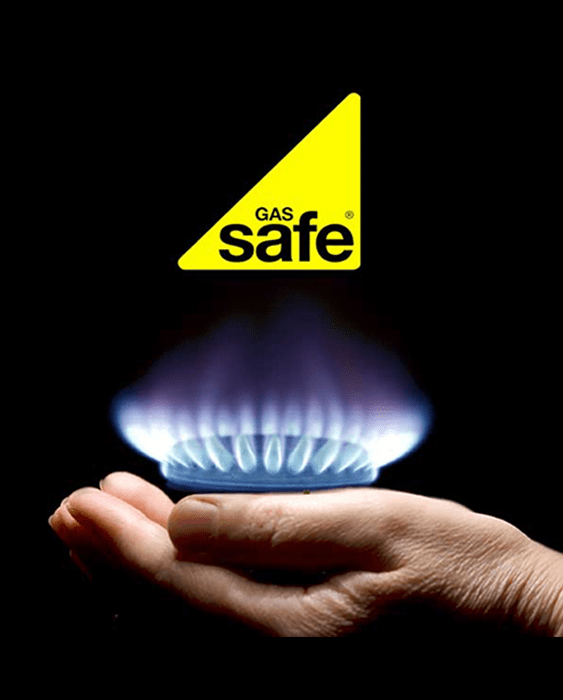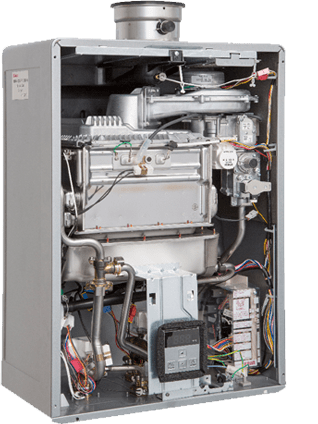Domestic services
Gas safety Certificate
As a homeowner keeping your family gas safe seem daunting. With 30 years of experience Pace Heating & Plumbing have been helping Londoner’s service and repair their gas appliances
As a homeowner keeping your family gas safe seem daunting. With 30 years of experience Pace Heating & Plumbing have been helping Londoner’s service and repair their gas appliances
As a homeowner keeping your family gas safe seem daunting. With 30 years of experience Pace Heating & Plumbing have been helping Londoner’s service and repair their gas appliances
Natural gas is one of the safest fuels used today – but you should be aware of how to use it safely. In the UK, National Grid safely and reliably distributes natural gas to more than 23 million customers, including houses, multi-family buildings, schools, hospitals, businesses and large companies.
How you can keep you and your family safe
At Pace Heating & Plumbing we’re committed to providing you with information and service to ensure you know how to identify and prevent any potential safety issues. Pace service, maintains and repair your home’s gas appliances and service line that runs from the gas meter into your home.
Almost every move requires a bit of DIY, however, doing work with a gas appliance can lead to gas leaks, fires, explosions, or exposure to carbon monoxide.
A recent survey by the Gas Safe Register revealed almost one in five (15 per cent) of those embarking on renovations plan to DIY on jobs that could have an impact on gas safety. There are also other projects that can indirectly put you at risk. For instance, building a conservatory or extension on a site that blocks or covers your flue is a common issue.

We provide Gas Safety Certificates (CP12) to Landlords, Home Owners, and Estate Agents within London, and surrounding areas.
We provide Gas Safety Certificates (CP12) to Landlords, Home Owners, and Estate Agents within London, and surrounding areas.
It’s vital that gas appliances are regularly checked. Regular maintenance can prevent gas leaks and stop carbon monoxide being released.
As a homeowner, it’s recommended that you get all gas appliances, flues and pipework installed, regularly maintained and serviced annually by a Gas Safe registered engineer.
Gas Safe registered engineers are the only people legally allowed to work on gas heating systems, boilers, cookers, fires and any other gas appliance.
A Gas Safe registered engineer will always carry a badge with the Gas Safe yellow triangle on it. You can check if an engineer is registered by phoning the Gas Safe Register on 0800 408 5500 or visiting the Gas Safe website.
All Pace Heating & Plumbing engineers are Gas Safe Registered
An Appliance Safety Check includes checking:
A Gas Installation Safety Check includes all of the above appliance checks, plus:
Afterwards, the engineer may give you a report showing the checks they’ve carried out. This depends on the type of checks carried out.
The only document engineers must provide by law is a Gas Safety Record for Landlords. You can find out more in our gas safety certificates guide.
A service of your appliances should include all of the above appliance checks.
This may include cleaning parts of the appliance and analysing the way the gas is burning.
Our Home Protection Plans include an annual boiler service.
Pace Heating & Plumbing is home to heating experts who have helped thousands of London homeowners searching for advice and guidance. If you’ve got heating questions, we’ll have the answers.
If an appliance is condemned as unsafe as a result of a gas safety check or service, the engineer should explain why and record this in writing.
The appliance must not be used and needs to be replaced urgently.
Go straight to hospital if the engineer tells you the appliance has been emitting carbon monoxide and you have been exposed to it. Tell the hospital you believe you may have been poisoned by carbon monoxide.
If your gas boiler needs replacing our installation service can help. Our fully Gas Safe registered engineers will fit a replacement and take away your old boiler. We’ll even fit a carbon monoxide detector absolutely free.
From heating to cooking, we use gas appliances every day. We want you to be able to use your gas appliances safely and without worry. To do this, everyone needs to follow some gas safety rules.
Below you’ll find information on what to do If you can smell gas or suspect, you have a leak
It’s crucial to act quickly in a gas emergency. These are the steps you need to take to stay safe:
Only use a mobile phone outside, well away from the leak.
Don’t send us an email or use the contact us page on this site to report a gas leak. Always call the gas emergency number.
When you are doing maintenance around your home, be sure to replace the batteries and test both your fire alarm and carbon monoxide detector. This should be done at least twice a year.
There are lots of things you can do to be gas safe and help prevent a gas leak.
You should always get appliances installed by a Gas Safe registered engineer. A gas detector alarm could help keep you and your family safe by alerting you to leaks.
You should also have a Carbon Monoxide (CO) detector installed in your home. Carbon monoxide is colourless, odourless and can be fatal.
You can find out more about how to prevent leaks with our guide to gas safety.
You should also have a gas safety check or service carried out on your appliances.
If you live in rented accommodation, make sure your landlord provides you with a gas safety certificate.
What does a gas leak smell like?
Gas is odourless in nature however the addition of mercaptan, a non-toxic and harmless artificial smell, helps to give it a unique smell to enable detection. Mercaptan gives off a strong sulphur-like smell which can be mistaken for the smell of rotten eggs. It’s often this smell that is the early warning of any sort of gas leak and you should take the appropriate measures to ensure the safety of yourself and others around you.
It should also be noted that carbon monoxide (CO) can also be leaked from gas appliances. This gas is a by-product of unsafe functioning gas appliances and has no smell. You’ll need a carbon monoxide or CO detector which will sound an alarm if CO is present. Learn more about CO and the dangers it poses.
What symptoms could a gas leak cause?
One of the first indicators of a gas leak is often the smell, however there are some physical symptoms that may be experienced.
The most common symptoms include:
If you suspect a gas leak and have any of the above symptoms, please go outside into fresh air immediately and call the appropriate gas emergency helpline.
Who can check for a gas leak?
Although anyone can check for a gas leak by way of the smell it gives of or, in the case of carbon monoxide, a CO detector activates – any confirmation and gas work should be completed by a competent Gas Safe registered engineer.
Carbon monoxide (CO) is a poisonous gas that you can’t see, smell or taste. Exposure to the gas can cause long-term damage or be fatal. Every year 40 people die from carbon monoxide in the UK, and 200 people are hospitalised. You can find more information below on how to protect yourself and your home from carbon monoxide poisoning, and what to do if there is a leak.
It’s easy to spot signs that your gas or heating appliances are producing carbon monoxide. Danger signs can include:
Symptoms can include:
If you or someone you’re with is feeling ill, visit your doctor urgently. Explain that symptoms may be related to CO poisoning and ask that they test a blood or breath sample.
If someone is seriously ill from poisoning it’s vital that they leave the room and get fresh air. You should call for medical help urgently. Make sure that when help arrives you tell them that you suspect carbon monoxide poisoning. This will ensure they get the appropriate treatment quickly.
If your carbon monoxide alarm sounds or you suspect a leak:
There’s no right or wrong time to have your boiler serviced – as long as it’s being serviced once every 12 months. While you can have your boiler serviced at any time of year, we highly recommend arranging one during the summer.
Carbon monoxide is released into your home when faulty appliances start leaking. You must take the proper steps in your home to make sure you remain safe from carbon monoxide poisoning at all times.
All Pace Heating & Plumbing engineers carry CO detectors, which are available to buy any time you’ve arranged for one to come to your home. You can also buy a detector online, or at a number of DIY stores and retail outlets. When you buy your detector, make sure it meets current European safety standards so that you know it’ll work safely and correctly in your home.
Look for alarms marked with the ‘EN50291’ standard. This may be written as BSEN 50291 or EN50291 and with the ‘CE’ mark, which can usually be found on the packaging and product. Your alarm will also have either a Kitemark or Loss Prevention Certification Board (LPCB) logo to show independent testing and certification.
When fitting your alarm, you should always follow the instructions that come with it. Where you put the alarm is important, so here are some tips for where to position it.
Always make sure to regularly test your carbon monoxide alarm, which you can do by using the test button. Check the instructions to see where the button is and how it works on your particular alarm. When the low battery signal sounds, you must either replace the batteries or buy a new carbon monoxide detector. To find out which, you can read the instruction manual that came with your detector.
Remember that your carbon monoxide alarm must never be used in place of annual safety checks. Contact a Gas Safe registered engineer every 12 months to ensure your appliances work correctly, remain in warranty and are safe to use.
Enjoy peace of mind with our comprehensive boiler, heating and plumbing home protection plans for Landlords
Enjoy peace of mind with our comprehensive boiler, heating and plumbing home protection plans for Landlords
Pace Heating & Plumbing is dedicated to bringing peace of mind to you year-round. All our engineers are gas safe registered. Call 0207-183-2727 if you are not ready to talk now fill out your contact information and a dedicated Home Advisor will work with you to customize a solution for your home and family needs
gas safety check
We’ll help you navigate the process. Book an in-home consultation today.
Carbon monoxide installation
Need a carbon monoxide alarm installed fast? Call us today, or book a engineer online.
gas safety certificate cp12
We’ll have you set up in no time. Schedule an Engineer vist today.
gas leak check, detection and repair
Think you may be having a gas Leak. Call us today, or book a engineer online.


Boiler repairs could cost over £600. You could avoid most unexpected repair costs like these with our Pace boiler Protection Plans.

We’re Pace Heating & Plumbing If you’re looking for boiler engineers in your area, then you’ve come to the right place. All our engineers are trusted & accredited Gas Safe registered professionals. We only higher the best. Get in touch today!